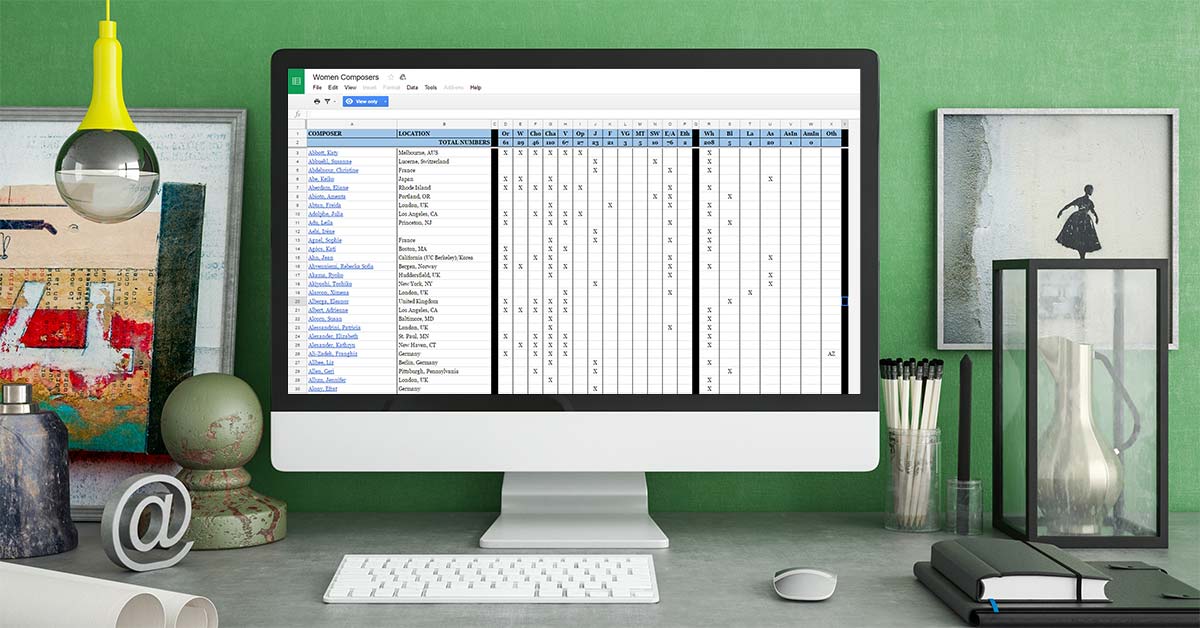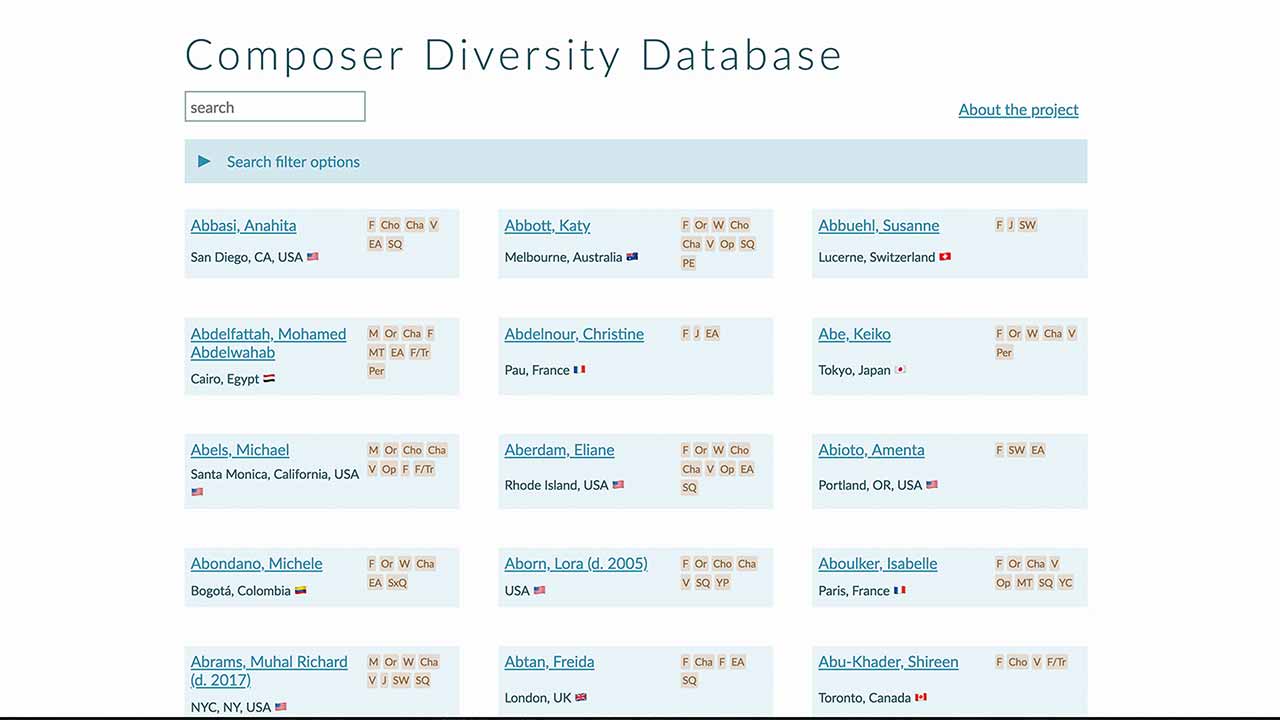On 3/16/2012, composer and arts administrator Rob Deemer wrote an article for NewMusicBox that included a list of women composers. His motivation was rooted in discussions from that time about women composers and since then, that simple list has grown into a full-fledged database project.
I contacted Deemer to learn more about how the project started and where it’s going.
“In my original NMBx article, I wrote ‘Having been the positions of programming works for ensembles as well as selecting guest composers for new music festivals, I understand that one of the challenges in ensuring a balanced program is finding the composers,’” said Deemer. “The internet gives us so much information with so little filtering.”
The result was his initial list of 202 female composers; since then, he works on expanding it via his own research and input from friends and colleagues.
In the summer of 2016, Deemer decided to move the project to the next level.
“A simple list isn’t very helpful for programmers because they don’t have time to go through each website individually, hoping that they find someone who has written something for their group or that would fit on their program,” said Deemer. “Therefore, I decided that a list that allowed anyone to search by genre and by race would be a good first step to allow those who choose what works are programmed, and anyone interested in a sub-set of female composers, to narrow their search quickly.”
Deemer has compiled more than 1,500 living and deceased female composers from across the globe and is in the process of filling in additional info about race, location, web presence, and genres.
Perhaps unsurprisingly, filling in all that taxonomy is no small task.
“It’s a long, slow slog and it will be several more months for me to finish it on my own,” said Deemer. “But it’s something that is absolutely necessary and that helps spur me on.”
Fortunately, we live in the age of crowdsourcing and Deemer has set up a Google form to process submissions.
Loading…
Perhaps unsurprisingly, researching taxonomy along with entering incoming form data it into a searchable, filterable database format can be a time-consuming task.
As of now, Deemer has yet to automate the data entry process so in addition to obtaining data, he’s very open to anyone with Google Sheet data entry and research experience who would like to volunteer some time to assist with that end of the project.
If you would like to help by volunteering some time, please contact Deemer with your interest.
Ideally, Deemer would love to see the project reach a level of usability and integration into programming decisions that the field has now with David Daniel’s popular programming compendium and online resource.
“The best way, in my opinion, to address the inequity in programming today is information,” said Deemer. “It is my hope that this database will help to increase the number of women composers in our concert halls and scholarly research in the years to come.”
For now, Deemer describes the database as something akin to a pre-alpha release state but in the spirit of open data projects, you can access everything that’s currently in place at the project’s Googler sheet repository.



